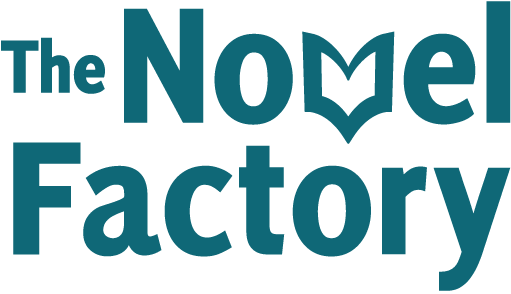
Should You Get an Agent or Submit Directly to Publishers?
This is a guest post by Luke Palder of Query Letter.
If you’re considering publication, that means you’ve finished your manuscript. Take a moment to bask in the glory of this achievement. Finishing a manuscript is an impressive feat, and you deserve to be proud.
Now it’s time to show the world the masterpiece you’ve crafted.
A warning: Getting published is difficult, and the publishing industry can be harsh on debut authors. Some authors avoid the woes of traditional publishing by choosing to self-publish, which is a viable option worth considering. For the purposes of this post, however, we’ll focus on the traditional publishing industry.
One of the key dilemmas an author faces when trying to break into the publishing industry is whether to seek representation from a literary agent or query publishers directly.
Let’s take a look at the differences to help you decide the best path.
The key differences
What’s a literary agent?
A literary agent will serve as your professional representative in the harsh world of publishing. Your agent remains by your side throughout your publishing journey, negotiating offers, fighting for your rights, and providing moral support.

Literary agents use their specialized industry knowledge to determine the most suitable publishers to approach. They often query several publishers at once, and if multiple publishers are interested in your manuscript, your agent can initiate a “bidding war” to make sure you get the best possible offer. Your agent can also negotiate foreign publication rights, adaptation rights, and other opportunities connected with your manuscript.
Honest and reputable literary agents never take an upfront fee. Their only payment is a commission, generally around 15%, of your advance and royalties. This means agents have a clear incentive to work hard to get your book published.
What’s a publisher?
A publisher is the company that prints your book and gets it stocked in bookstores. Publishers polish the text, design the book cover and interior layout, and may make other changes to your manuscript to make it more commercially viable before sending it to the printing presses and distributing it to readers.
If you want to publish your book traditionally, you will have to work with a publisher.

The two paths
If you choose to go without a literary agent, you must query publishers yourself and then work directly with the publishing house to negotiate the best offer for your book. This process can prove intimidating, especially for new authors, and you may need to hire a lawyer to run through contracts with you.
Conversely, if you hire a literary agent, she’ll work with the publisher on your behalf, and you can rest easy knowing an industry expert is fighting for you. Many authors feel more comfortable knowing they have the support and knowledge of a literary agent on their side.
Which route should you choose?

Depending on your manuscript and the publishers you’re targeting, you may not have a choice: Major publishers, including the “Big Five,” rarely accept unsolicited submissions directly from authors. While some do, the reality is that most will put significantly more weight on a submission from a literary agent.
The exception is indie publishers, by which we mean small independent publishers who publish only a certain number of titles per year and generally have smaller distribution networks. Generally, indie publishers will accept direct submissions from authors, so you may choose to forgo working with a literary agent in this case.
Identifying your target market
In other words, the best way to determine whether you should hire a literary agent is to identify your target market.
If your manuscript has the potential for mass appeal or fits into a popular genre, such as young adult fiction, you probably want to work with a big-name publisher who can distribute your book widely. In these cases, you should get yourself a literary agent.
If, on the other hand, your book is on a niche or esoteric topic that you’re not expecting the masses to be interested in, a specialist indie publisher or an academic press is generally the way to go. Indie publishers understand your niche and can get your book to the people who will want it. In this case, you can get away with querying directly, without the help of an agent.
Here are a few examples to help you get a feel for the landscape:
- Is your manuscript a young adult book, a genre novel with general appeal, a self-help book the average person could benefit from, or a biography on someone well known? If so, you should hire a literary agent and target large publishers.
- Is your book a collection of poetry, sci-fi that requires a level of technical knowledge to enjoy, an esoteric academic book on linguistic theories, or a hobby book on birdwatching? Your best bet is to target a niche audience through a specialist indie publisher, in which case you may not need a literary agent.
How to find the right agent or publisher

Finding the right agent
Research is key! Because literary agents often specialize in a few genres and have other specific preferences, querying an agent outside your niche is a clear path to rejection.
The best way to find agents likely to be interested in your work is to search databases such as PublishersMarketplace. Use the search function to narrow in on agents that represent your type of manuscript, and then browse their profiles to pick the ones that interest you the most. Check out their websites and social media profiles to make sure you’d be a good fit.
When researching agents, you should also take a look at the books they’ve represented in the past. Not only can you potentially find good material for your query letter, but you can also get a better idea of whether an agent has a track record of landing good offers for her clients.
Finally, make sure the agent is not a scammer. No legitimate literary agent will ask for an upfront fee, so if you encounter one who does, run. Another clear red flag is if the agent promotes services such as editing from a specific company. Vet potential agents by consulting sites such as Writer Beware.
Finding the right publisher
The route to finding the right publisher for a manuscript is similar: You have to identify your genre and target publishers that are likely to be interested in your work. A literary agent will do this job for you, so if you choose not to work with one, be prepared to do your own research.
The best way to find a publisher is through Writer’s Market, the most popular database of reputable publishers, which helps authors find big-name and indie publishers alike. Browse the website of each prospective publisher to make sure it’s a good fit for you.
Next steps
Once you’ve found a suitable publisher or agent, it’s time to send a query letter. Put together a professional, unique letter tailored specifically to the agent or publisher you’re querying—but be prepared for rejection. Even bestselling authors face countless rejections before making it big. Perseverance is key.
Publishing a book is hard work, but it’s worth it to see your book out on shelves. If you’ve already made it this far, you can make it all the way to the end. Good luck!

QueryLetter.com is a team of former literary agents, editors, and other publishing industry experts who know the ins and outs of the publishing world. They are not a literary agency or a publishing house: Instead, they specialize in helping authors navigate the querying process and take that crucial first step toward getting published. Working personally with each author, they compose a unique query letter, synopsis, and manuscript outline, as well as provide lists of suitable agents and publishers the author can query. Their aim is to help authors on the path to achieving their dreams.
